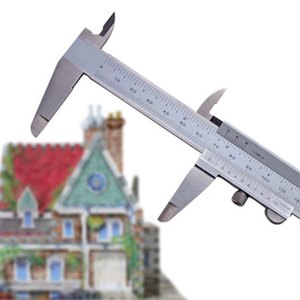
When life pushes back hard with unforeseen financial challenges, you may find yourself in the unenviable position of falling behind with your mortgage payments. If you feel like you’re past the point of no return, you may still have an ace up your sleeve. In certain circumstances, lenders will work with their borrowers to extend their loan term by offering a mortgage extension agreement.
What's a Mortgage Extension Agreement?
A mortgage extension agreement is a type of loan modification, which is structured to help struggling borrowers. The modification changes the original terms of the mortgage by extending its due date, but it’s not an automatic right of borrowers to invoke. Effective and prompt communication with your lender will help facilitate the mortgage extension process, but it won’t guarantee that your lender consents to a modification.
Loan Modification Vs. Loan Forbearance
A loan modification that results in a mortgage extension is not the same thing as loan forbearance. A modification offers a long-term loan repayment solution, but forbearance is a temporary measure.
While a modification restructures the original loan terms, forbearance simply postpones the due date for past due payments. Essentially, your lender agrees to let you skip some of your mortgage payments in the short term. You’ll have to make up these skipped payments, however, which are typically added to the end of your mortgage to extend your original maturity date.
Types of Loan Modifications
A mortgage extension is only one type of loan modification. By extending the term of your mortgage, you’re tacking on more time needed to repay your loan, but it may help you avoid foreclosure.
Other modification options include principal reductions, which happen if a lender agrees to remove a portion of your debt; a lower interest rate, if a lender agrees to reduce your rate; and converting your adjustable-rate mortgage to a fixed rate.
Qualifying for a Mortgage Extension
Different lenders place different qualifying criteria on loan modification approvals, and some lenders don’t even offer this option to their borrowers. Generally, you’ll have to be delinquent for at least 60 days, which means you’ve missed two mortgage payments, or you’ll have to prove that you’ll soon be delinquent. You’ll probably have to prove that you’ve experienced a hardship in your circumstances, such as a disability or illness, loss of job or loss of spouse. Lenders may charge a mortgage extension fee for modifying your mortgage, but these typically are added to the balance of your loan.
Downside of Mortgage Extensions
A mortgage extension may be the only recourse you have to avoid foreclosure. In the short term, this can be a lifesaver, but in the long run, you’ll end up paying more for your mortgage. By extending your mortgage’s due date, you’re also increasing the amount of interest you’ll pay because you’re making payments over a longer period of time. You may also have to pay modification fees that would be rolled into the total loan amount.
Extension Mortgage Advice
Although you can directly negotiate with your lender to request a mortgage extension, you may want to seek legal advice. Particularly if you’re staring in the face of potential foreclosure, an attorney may be able to help you keep your home. Seek a mortgage modification attorney who specializes in helping borrowers negotiate loan modifications. Although you'll pay legal fees for the attorney you hire, this cost may be vastly offset by the cost of losing your home.
References
- modification - Wiktionary
- What is mortgage forbearance?
- Nerdwallet: All You Need to know About Loan Modifications
- Consumer Financial Protection Bureau. "What Is a Mortgage Loan Modification?" Accessed Feb. 13, 2020.
- USA.gov. "Foreclosure." Accessed Feb. 13, 2020.
- Experian. "What Is Wage Garnishment?" Accessed Feb. 13, 2020.
- Internal Revenue Service. "Recourse vs. Nonrecourse Debt." Accessed Feb. 13, 2020.
- U.S. Department of Agriculture Rural Development. "Chapter 10: Credit Analysis," Page 34. Accessed Feb. 13, 2020.
- Experian. "Loan Modification and Credit Scores." Accessed Feb. 13, 2020.
- Internal Revenue Service. "Topic No. 431 Canceled Debt – Is It Taxable or Not?" Accessed Feb. 13, 2020.
- Consumer Financial Protection Bureau. "What Is the Difference Between a Fixed-Rate and Adjustable-Rate Mortgage (ARM) Loan?" Accessed Feb. 13, 2020.
- Urban Institute. "Government Loan Modifications." Accessed Feb. 13, 2020.
- Federal Housing Finance Agency. "Fannie Mae and Freddie Mac Total Refinance Volume Increases in March as Interest Rates Fall." Accessed Feb. 13, 2020.
- Freddie Mac. "Enhanced Relief Refinance Mortgage." Accessed Feb. 13, 2020.
- Internal Revenue Service. "About Form 4506-T, Request for Transcript of Tax Return." Accessed Feb. 13, 2020.
- Consumer Financial Protection Bureau. "Help For Struggling Borrowers: A Guide to the Mortgage Servicing Rules Effective on January 10, 2014," Page 36. Accessed Feb. 13, 2020.
- Experian. "Bankruptcy: Chapter 7 vs. Chapter 13." Accessed Feb. 13, 2020.
- Federal Trade Commission. "Mortgage Relief Scams." Accessed Feb. 13, 2020.
Writer Bio
Victoria Lee Blackstone was formerly with Freddie Mac’s mortgage acquisition department, where she funded multi-million-dollar loan pools for primary lending institutions, worked on a mortgage fraud task force and wrote the convertible ARM section of the company’s policies and procedures manual. Currently, Blackstone is a professional writer with expertise in the fields of mortgage, finance, budgeting and tax. She is the author of more than 2,000 published works for newspapers, magazines, online publications and individual clients.
